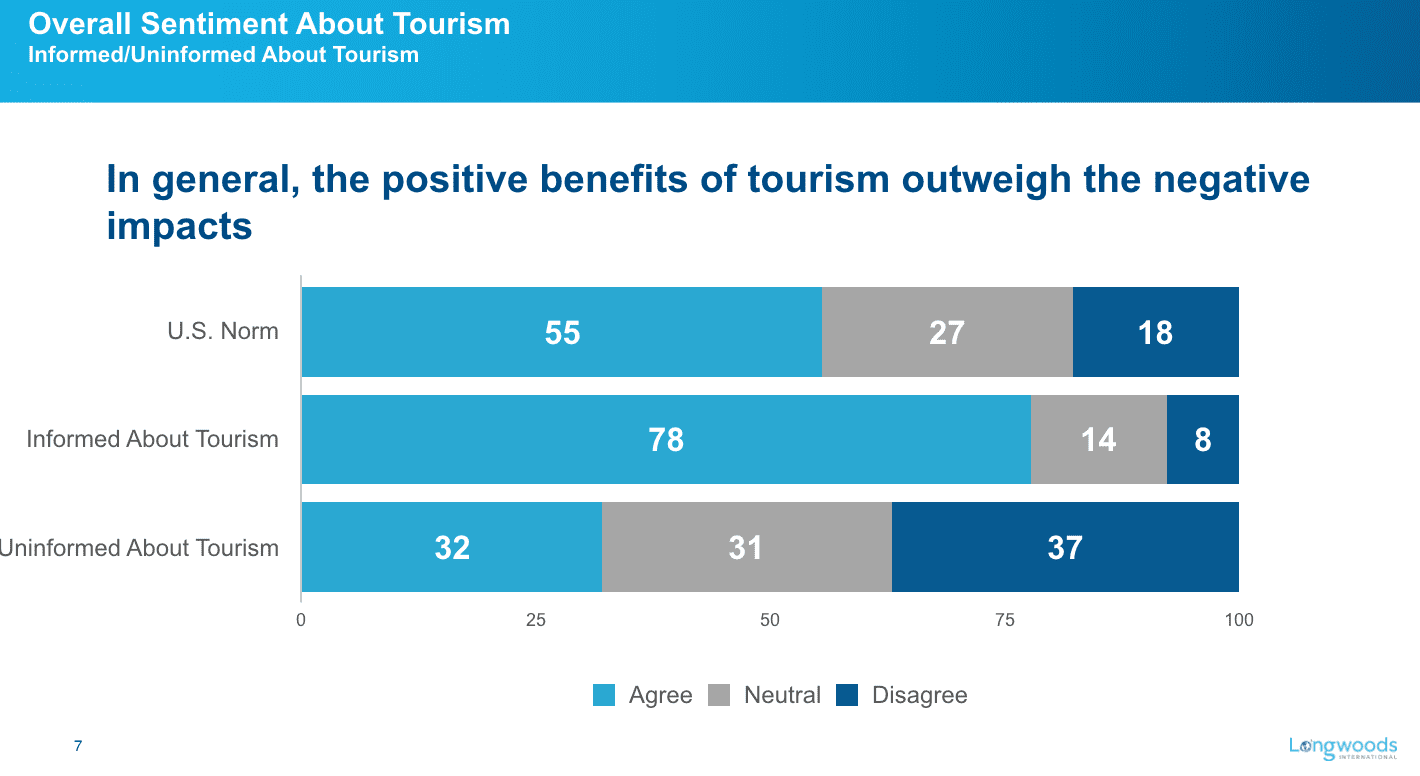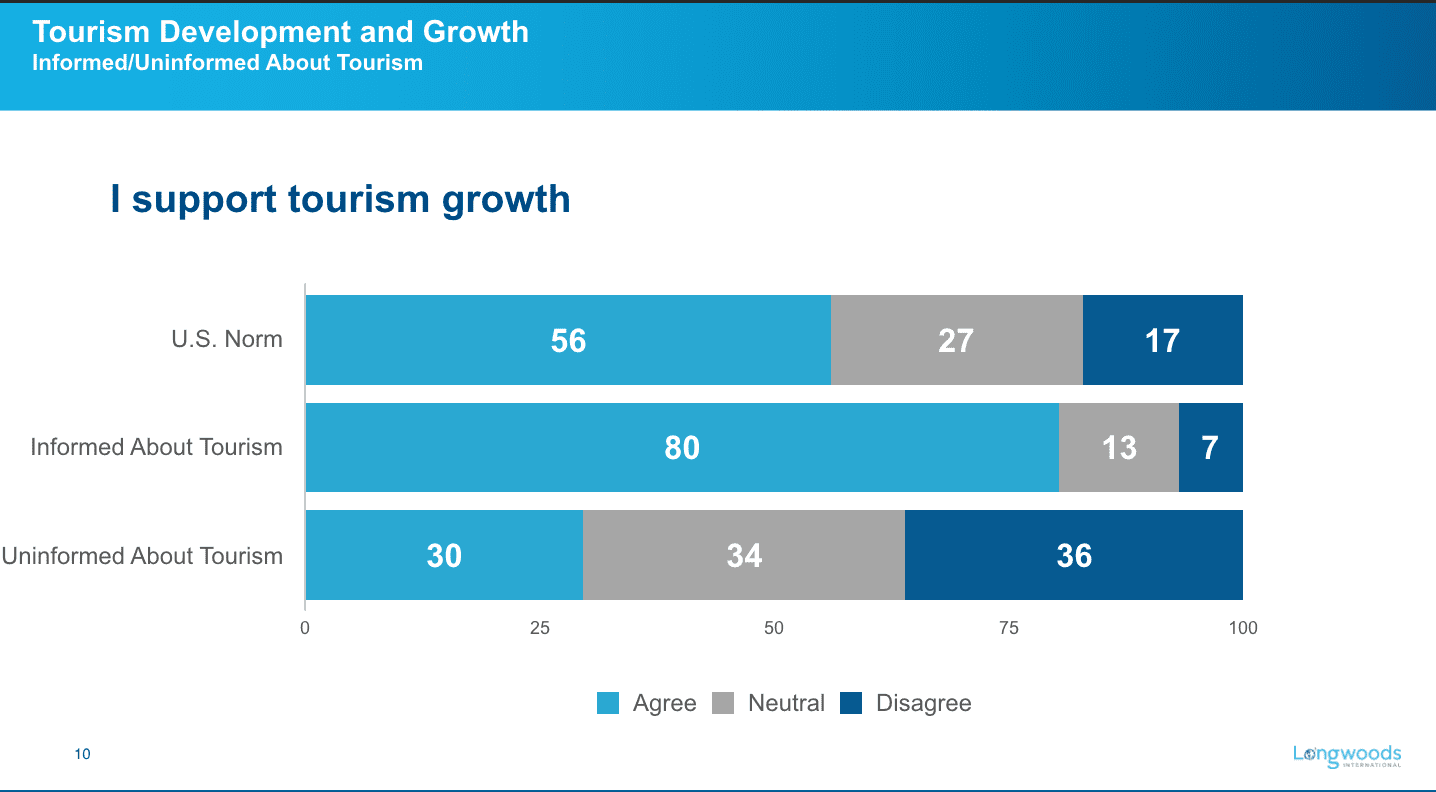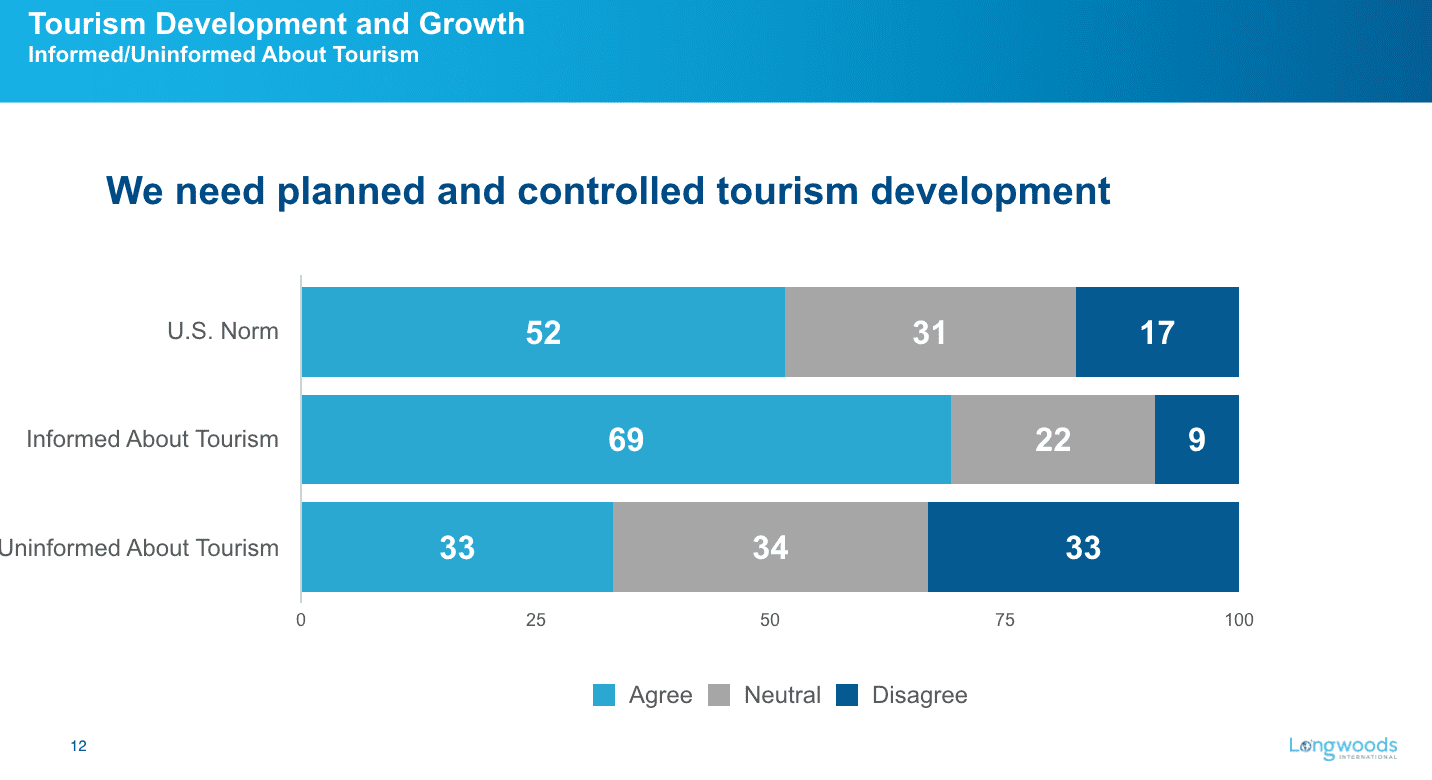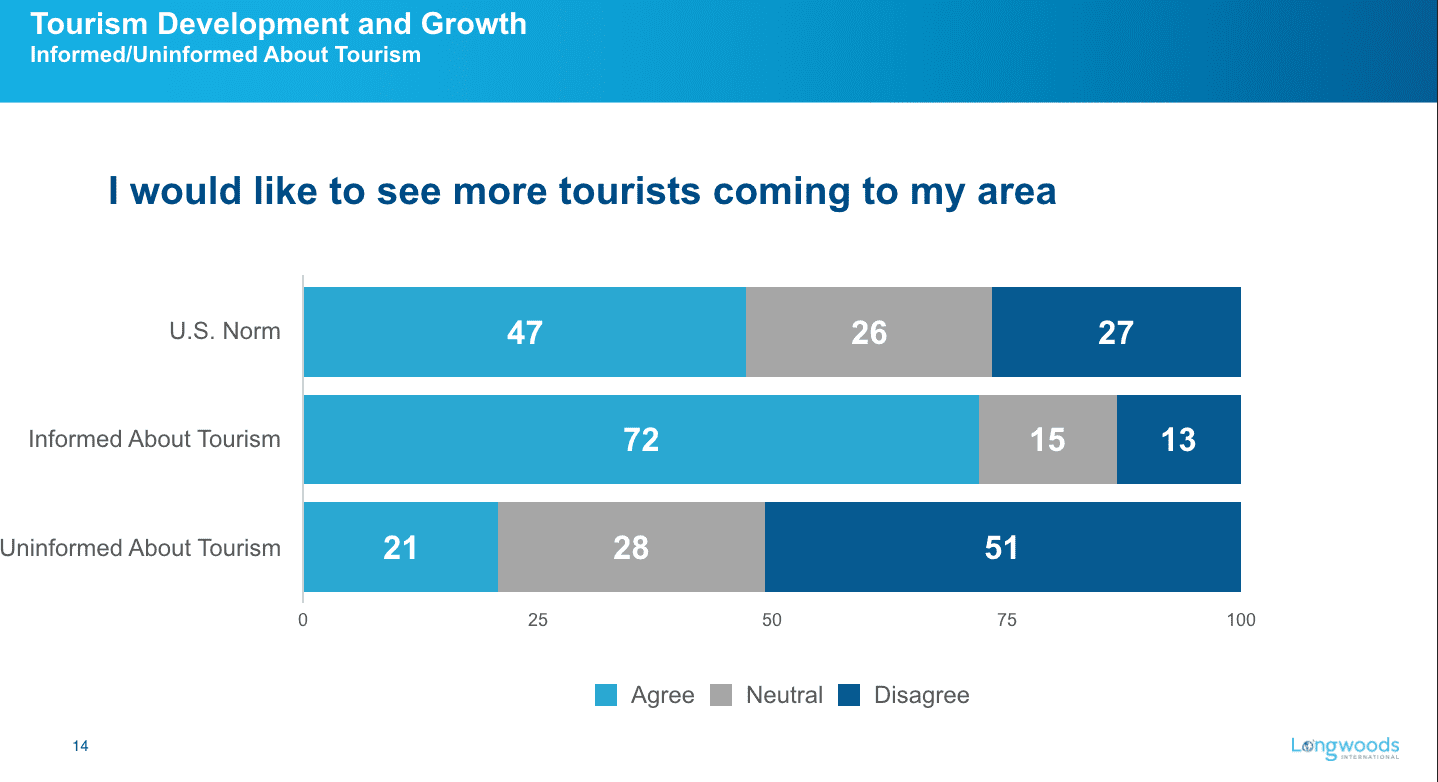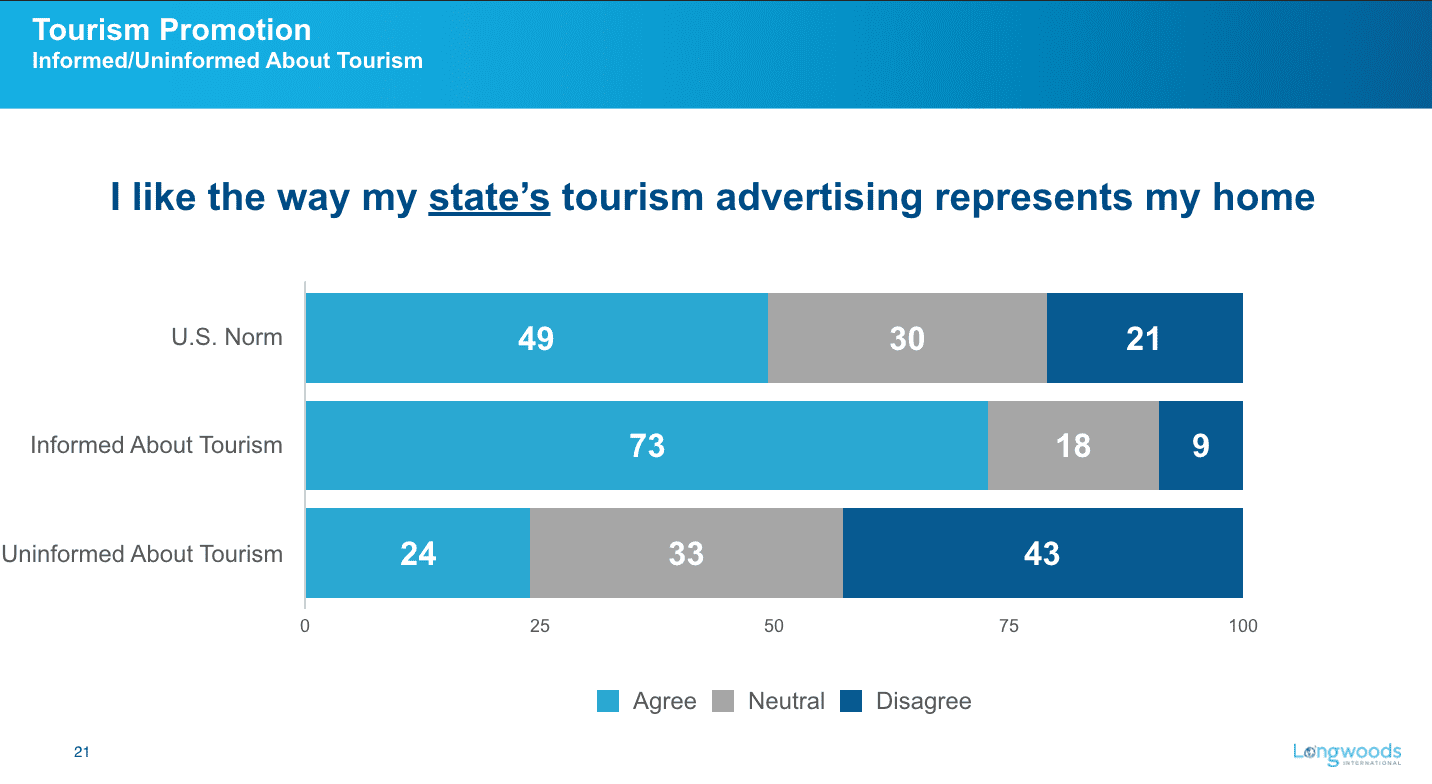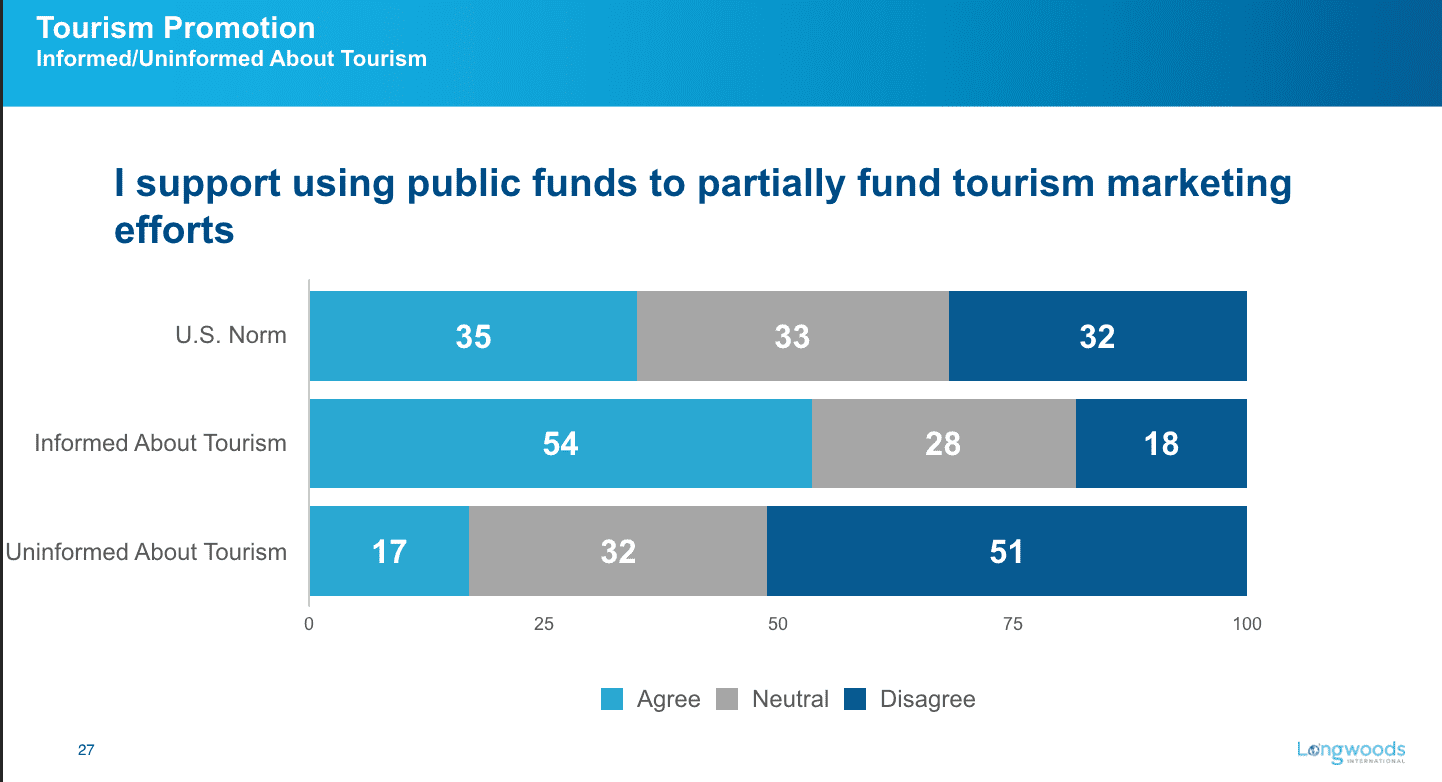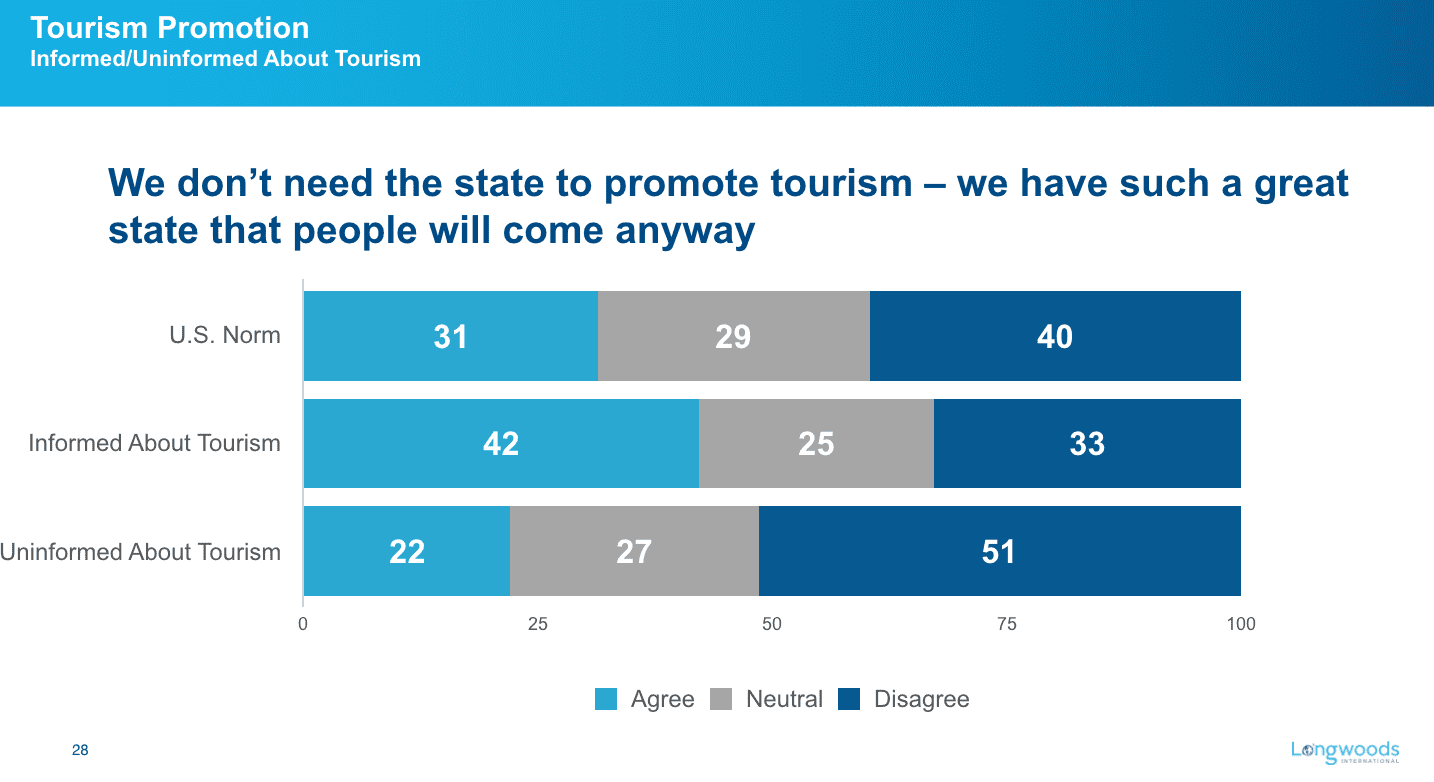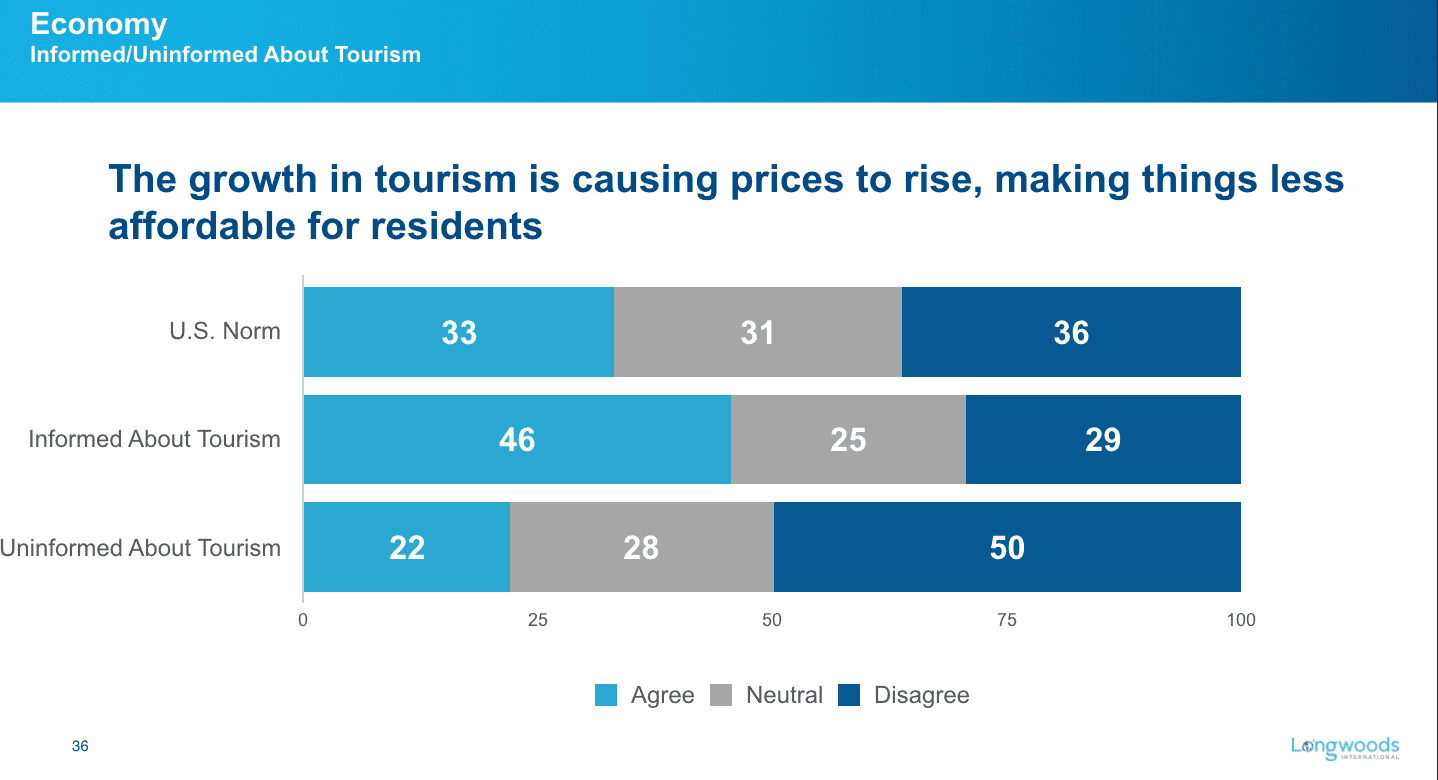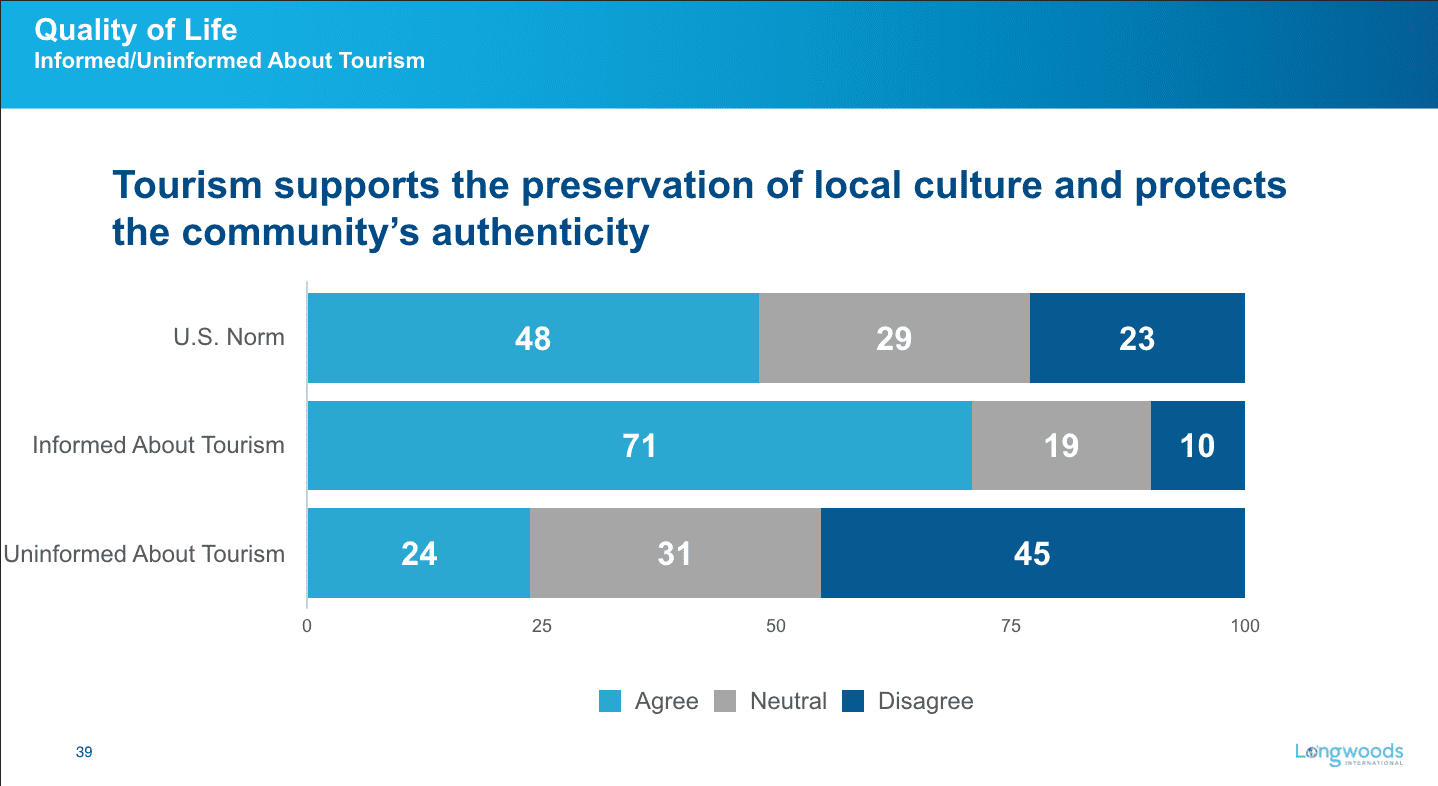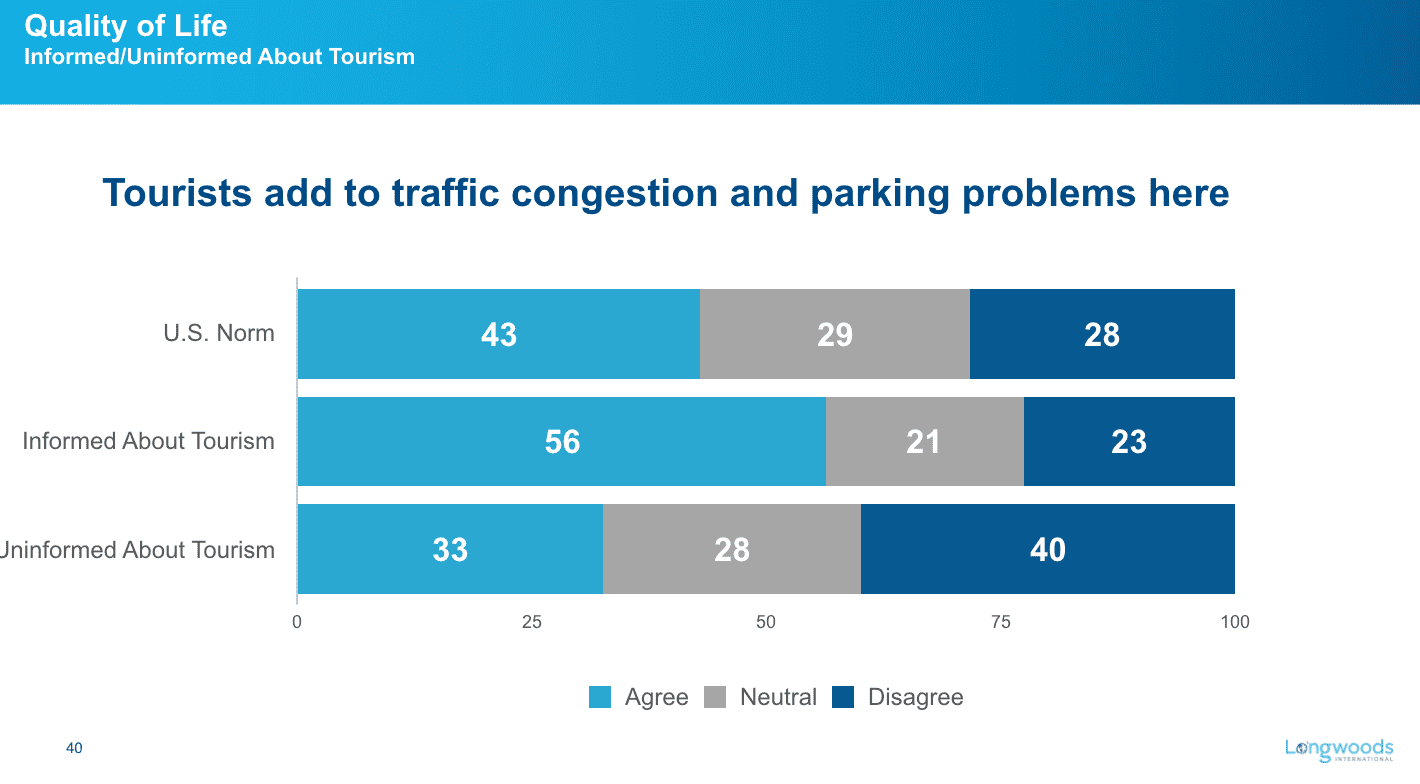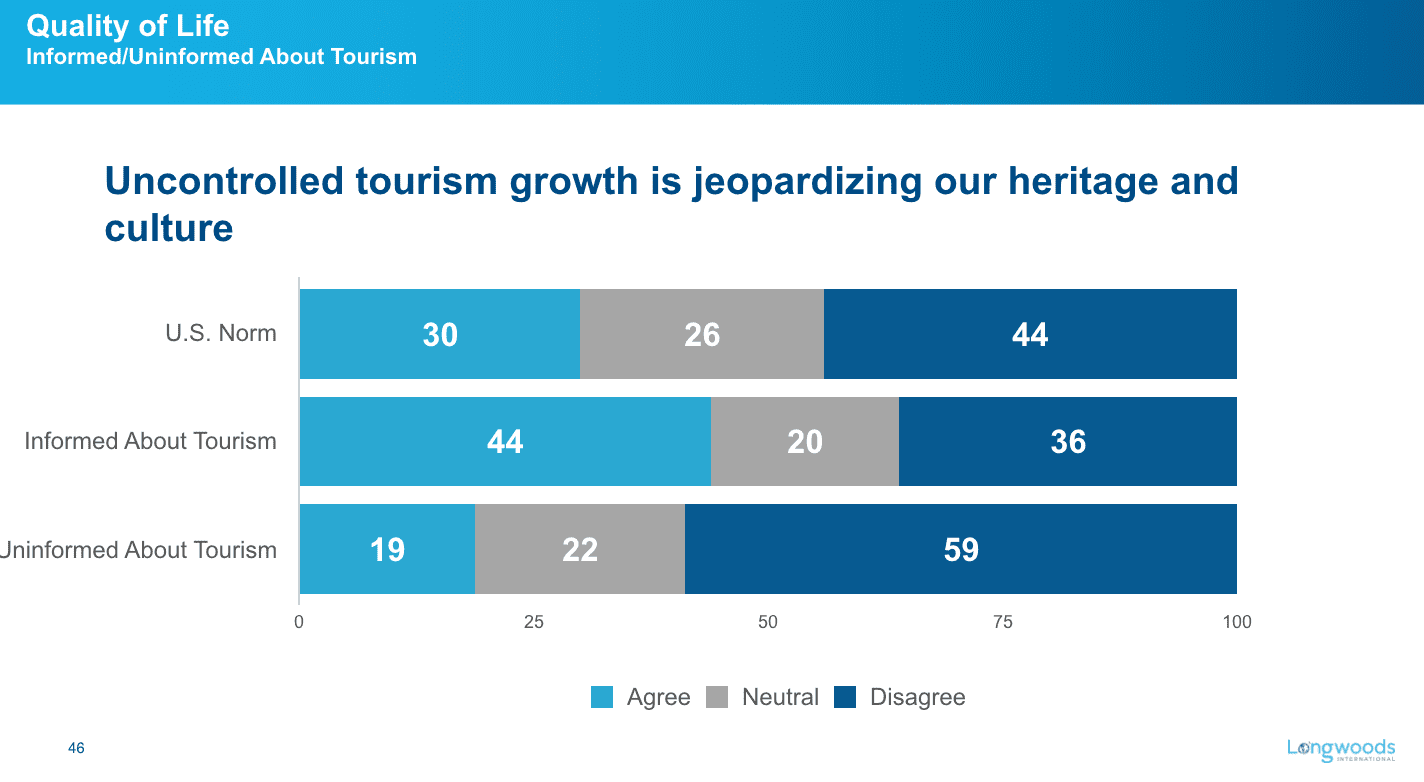Only About Half of Americans Think Tourism Is Positive for Country

Skift Take
In a year of low tourism for almost every country, what is the sentiment for and against tourism in communities? This is the question a lot of people in the travel industry are trying to decipher, shifting from the sentiment of overtourism to undertourism almost instantly.
This summer, only a few months into the pandemic, research shop Longwoods International tackled this and related questions to a U.S.-wide consumer research panel of 4,000 adults, in association with Destinations International. The results, needless to say, are very interesting. The study examined both practical and emerging/growing concerns, including economic development, perceived environmental impacts, overtourism, quality of life, and many others. More on the results here.
Of the results from about 50 questions that the researchers asked the panel, some very interesting, some hopeful and some challenging responses, we're extracting the top results below we think that give a good overview of the overall sentiment. The key in charts below is U.S. Norm, which is normalized data across the country, versus the self-reported response of Informed versus Uninformed citizens about the state of tourism.
The topline takeaway: A lot of citizen-level education is still needed on benefits of tourism to local and regional economies, in an age of NIMBYism and hyper-polarization.
From Longwood, its conclusions and takeaways are a more optimistic take than our read of the results:
Conclusions
- Most Americans agree the benefits of tourism outweigh the negatives.
- While Americans overwhelmingly support tourism growth, there is room to improve their inclusion in the planning process.
- However, even among those informed about the tourism industry, they predominately do not see the industry as a creator of high-paying jobs.
- When residents are informed about travel and tourism, their support for funding, development, and overall growth of the industry increases significantly.
- Residents largely favor government support and funding for tourism promotion, while the opportunity does exist to grow the level of this support.
Key takeaways from these conclusions:
- Create regular and on-going resident engagement, never assume residents understand the value of tourism to the community and what you do as part of the industry.
- In addition to creating brand ambassadors, it is important to to create different messaging tactics with both informed and uninformed residents
on tourism. - Keep residents informed and turn locals into “Brand Ambassadors” so they are both your industry advocate and your strongest marketer.
- Treat your resident as your first customer, the front door to tourism, industry advocate and beneficiary of the travel industry’s value to their community.
With that, some key charts below:

